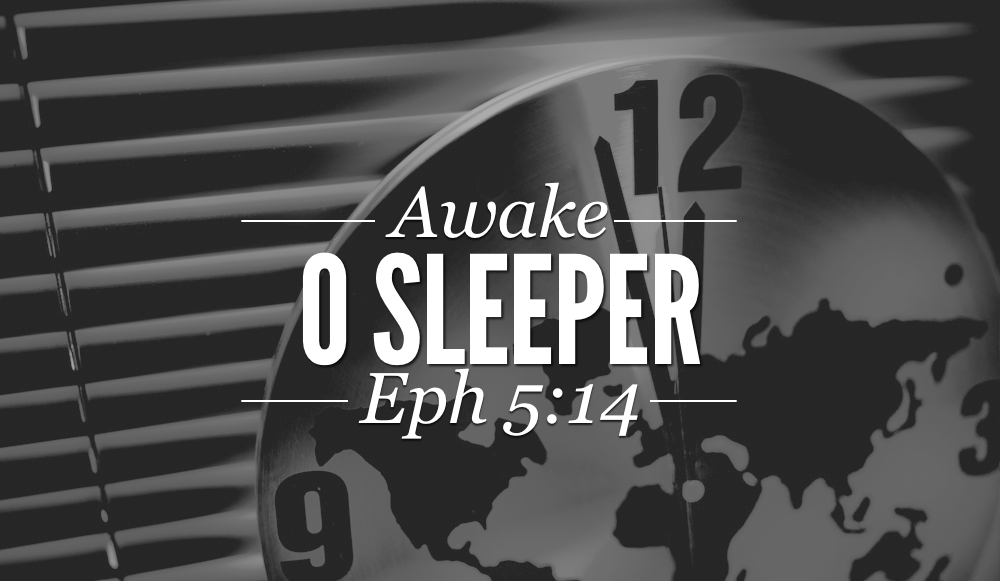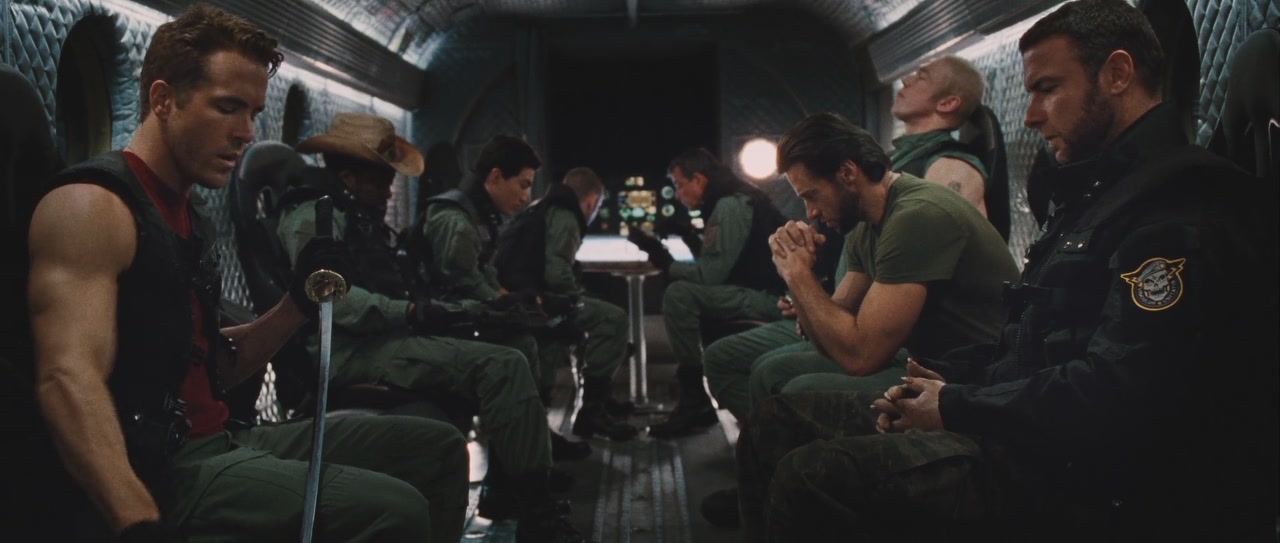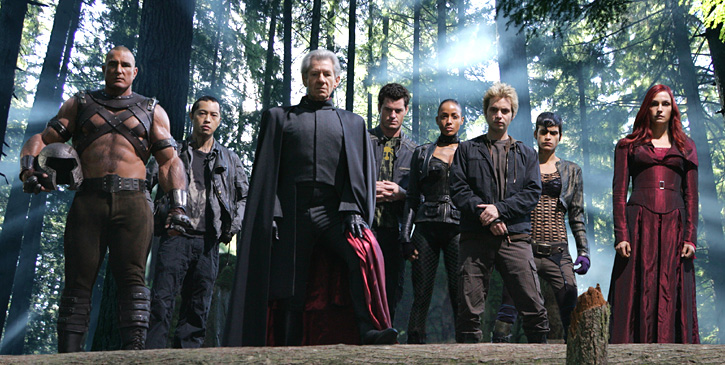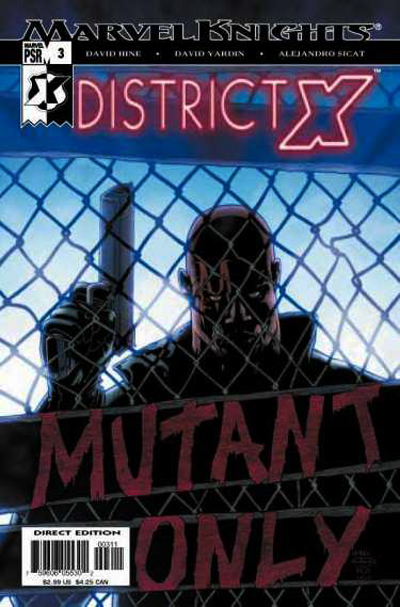The ever provocative Stephen McAlpine has a new post up urging Christians to head to the bunkers (hyperbole, just) in response to the postal survey and Royal commission findings. I like Stephen, I think he has useful insights and a cracking turn of phrase… and, along with Mikey Lynch we’ve talked about doing a bit of a ‘blog in the flesh’ type jaunt around the Benedict Option (the theme of his latest post); in the absence of an ‘in the flesh’ thrashing out of what the Benedict Option might look like for an Australian context and outside the context of the big-O Orthodox tradition Dreher writes from, here’s a written response… (the second response I’ve written to a thing of Stephen’s this week — you’ll have to stay tuned for an article in Zadok magazine that Arthur Davis from meetjesusatuni.com and I co-wrote about millennials and church).
The post, titled ‘Church: Plan for a plan B future’ is a call to jump on board the Dreher train; when it comes to Rod Dreher’s specific framework, his ‘option,’ I’ve already voiced my opinion and won’t rehash it here, except to say that I feel like both Dreher and Stephen underemphasise the external focus of Christian life and thus Christian community; you’ve got to train the way you play as a Christian; withdrawing for ‘training’ and formation will be being formed in precisely the wrong posture and with the wrong telos in view; if we’re to be images of Jesus, being transformed by the Spirit until he returns, we’re to be God’s visible representatives in the world — ambassadors for Jesus, not just embassies for Jesus where people might find themselves; and this ambassadorial role should thrust us into some uncomfortable places where we may well be crucified; but this crucifixion is formative and not a reason to withdraw, in fact, it’s a witness to the truth of the Gospel.
Stephen’s piece suggests there are two possible ways to reject Dreher’s (or his own) position. You’re either a liberal or an ostrich, who both misses the power of the cultural diagnosis, or is scared off by the ‘withdraw’ idea. There’s a third option which overlaps with this second one — those who simply don’t understand the complexity of Dreher’s very clear proposition, and so reject it.
“The naysayers have fallen in to two camps. Those who like the change they see in the culture, affirm it, and think that the church needs to get with the times. For them there is no need for strategic withdrawal, merely strategic cultural assimilation. After all what’s not to like about an ageing, shrinking, faithless demographic in your denomination?”
“Others, more likely in the evangelical camp, hear the word “withdrawal” and think “retreat”, “surrender”, “give up”. They fail to hear the words “strategic” or “return”, so loud are their heart palpitations. I’ve been to a conference in which the speaker mentioned that naughty “w” word, and was afterwards surrounded by slightly narky people of the “no surrender” type. May I humbly suggest if that is you, you’d don’t get it?”
Here’s my third way summary to save you getting to the end. I reject Dreher’s Option and McAlpine’s “Plan B” because I think we’re called to be cross-shaped disruptors of the worldly status quo, and not to do that from a position away from the public square or ‘withdrawal’ (as Dreher means it). We’re to take our lead from Paul’s infiltration of Caesar’s household, not from the monastic community of the Essenes or the Benedictine Order.
When Dreher talks ‘strategic’ and ‘return’, I wonder if Stephen shares his timeframe? It’s definitely not in the short term, if his analogy to Benedictine communities and the dark ages is the ballpark we’re playing in we’re not talking about a few years, or decades, but lifetimes; an epoch.
The whole Benedictine analogy is a little tediously anachronistic — these were pre-internet times where it was much harder to form rapid, community driven, responses to political pressure and change, and a much less easily global/transient time where it was much easier to talk about society as mono-cultural, and most of the ‘from above’ political or cultural movements were reasonably difficult to resist. I’m not suggesting global connectivity is a panacea to the pressures of the world, just that a strategy from the dark ages might not be the most imaginative solution (especially when it involves actively disconnecting from these technologies — non ironically suggested by a blogger who has gained global attention for his ideas and sales for his books from these platforms he sees as dangerously ‘deforming’).
I’ve read the Benedict Option. Twice… and plenty of Dreher’s blog posts both before its release and about the response to the book. I think the Benedict Option is a Rorschach test; it has it both ways on the language and descriptions so much that it just gets read according to how alarmist one might be; if you fully drink Dreher’s kool-aid, you’ll find, in it, an urging to monastic living and ark building, but more moderate readers will find plenty of strategies for thicker Christian community; what you won’t find is a manual for hopeful Christian engagement anywhere that looks like a ‘corridor of power’ — be it the legal fraternity, politics (perhaps apart from the particularly local variety), or workplaces where the business is actively engaged in the ‘market’ such that shareholders and stakeholders will want the business to bend the knee to Caesar, be it the Caesar of the political, economic, or sexual empires. Dreher would have us head to rural communities and bunker down in a mostly ‘closed’ but rich communal life, where we start small businesses, work with out hands, and structure a deep and local church (with Christian schools and businesses) that can whether the storms the world throws our way.
In his take we’re defeated already — we’re headed for a dark ages, and Christianity, in particular, is going to be expunged from influence and from the public square.
It’s hard for me to totally buy this narrative, when:
a) it was mostly produced before the ‘evangelical’ movement in America elected Trump and jumped into bed with the empire (thus destroying the credibility of the church and the doomsday scenario that says it has no power),
b) in Australia there’s a robust egalitarianism and distrust of all institutions that has been around since ‘institutional Christianity’ was responsible for whipping convicts and seeking to displace and dispossess the indigenous community (until Christians decided our indigenous neighbours were human, and so set apart ‘converting’ them by making them act like white people and institutionalising them in a literal sense).
c) our political institutions still have Christian trappings like the Lord’s Prayer, and a significant number of our politicians are Christians who speak in favour of religious freedoms even as they vote for same sex marriage as a democratic duty.
d) the church is perceived as a powerful institution wielding disproportionate influence on the shape of Australian society (particularly from the top down)
e) research (from McCrindle) suggests most Aussies don’t hate the church or Jesus at all; they do, however, seem to have problems with our stance on homosexuality and with church abuse; homosexuality is the top ‘issue’ that functions as a belief blocker for non-Christians, while church abuse is the top ‘behaviour’ that blocks belief.
It only seems to be Christians who believe that the pursuit of different rights and programs for LGBTIQ+ Aussies has to come at the direct expense of Christians. Now, this might be true, but I simply don’t believe the binary options for rejecting the Benedict Option as a strategy, nor do I buy that Dreher’s diagnosis adequately describes either the scene in Trumpland or in Australia. I’ve certainly not experienced ‘hate’ or being ‘pushed out’ of the public square by anybody but Christians — one prominent Aussie apologist said I should be de-platformed by the Gospel Coalition and called out as a liberal because of the stance I suggested people take on the postal survey…
I don’t buy this ‘there’s only one way… and it’s down’ narrative… I prefer the diagnosis in Wilkinson and Joustra’s How To Survive The Apocalypse, that modern (global) society never just moves in one direction but is in constant tension; I also don’t believe that the church has nailed our public Christianity strategy (or theology) (a drum I’ve been banging for years). Stephen had a dig at me for not having an appropriate political theology in a back and forth on Facebook this week, but I’m simply not sure that assertion creates truth simply by being spoken…
In his own take on the Australian scenario, particularly following the legislation of same sex marriage and the release of the recommendations of the Royal Commission into Institutional abuse, Stephen says:
“For let’s face it, the wider culture does not look at the two events separately, no matter how much we say “Yes, but.” We kinda need to stop saying “Yes, but” at some stage. We’re not being heard and we’re not likely to be. The wider culture has signalled that it has made the precipitous move to celebrate sexuality in a manner that the church does not, and will, if pressed, simply state that the church has not been practising sexuality in the way that the church has publicly celebrated.
Don’t say “Yes but.”
For whether or not this is true of all churches, indeed of the majority, is not the point. In this post-Christian culture as far as the world is concerned, we’re all in this together. Our echo chamber conversations are a waste of time. The media conversation sets the tone for the barbecue conversations, so you’d better get used to it.”
I’m unconvinced that the media is as hostile to Christianity as McAlpine suggests; for every Q&A lion’s den, there’s an Andrew Bolt. I am convinced the Aussie media field is massively fragmented and that people are increasingly committed to getting their news and analysis from echo chambers that reinforce existing beliefs and hasten the polarisation and tribalism of the Australian community — which is exactly the danger of the Benedict Option. It supports a tribal, self-interested, form of Christianity that offers a hopelessness in the face of the world’s problems rather than a practice of loving engagement in issues that provides our proclamation of the logos of the Gospel with an ethos to match.
If an inability to have truly civic dialogue and the politicisation of every thing public are two pressing cultural issues in our fragile democracy, then why would Christians withdraw our voice from the public square — particularly given the way this plays out in barbecue conversations? Why would we not seek to create, curate, or patronise (in the sense of supporting) public squares that are less polarising and more open to civic conversation (rather than firing off opinion pieces to The Spectator). Why would we cede defeat and so stop trying? I don’t speak in total ignorance here, plenty of my professional life was spent engaging with the journalists who are now in large media institutions in capital cities, and the most ‘hostile’ or outspoken atheist of the bunch is the one who occasionally engages in civil conversation about politics on my Facebook wall… An anecdote like this is not data, but the same ABC that employs Tony Jones to run Q&A, also employed Scott Stephens to run a religion and ethics portal, and to host a radio show discussing faith in Australia.
Here’s Stephen’s take (which does give us a time frame — a generation — but also a scenario that drives his ‘Plan B’ strategy):
“So I am all for religious freedoms and freedom of conscience in the public square. I am committed to pushing for governments to continue funding faith schools that are not required to sign off on anti-discrimination legislations in terms of employment. I am committed to doing so until it proves impossible. Which it will indeed prove. So we’d better have a Plan B. If we don’t we’re plain stupid and playing stupid.
For me, Plan B is Plan Benedict. And the reason is simple: I believe that the current hard secular context will push and push and push, and then find that the pendulum swings back against it somewhat. True there may be irretrievable losses for the church in terms of state favour, but if the goal is a strong church that can demonstrate in word and deed that it runs counter to the culture, and that it is, in my term, “repellently attractive”, then that is a win as far as I am concerned.
Of course you will only see that as a win if you’re prepared to put in the hard work for a generation.”
It’s not all doom and gloom. These are actually fighting words fuelled by a vision of the secular landscape in France (which is different, again, to the secular landscape in the US, and makes me wonder why the secular landscape in Australia has to be the same as those, or even an amalgam).
“The point of the Benedict Option is not that we hide away as the culture gets worse and worse, but that we prepare ourselves for the new landscape that we will have to negotiate; a landscape that will be harsher and that will require a deeper commitment to a seemingly less plausible, more marginalised counter culture – the church of God.
It’s about toughening up, creating alternative institutions for our children to learn and grow in. Think Star Wars and Jedi Knight training, as opposed to hill-billy fundamentalists. B/O-ers are planning on coming back, if Jesus doesn’t first.
And will the cultural aggression die down to a point where we can find a non-contested place in the public square again?”
If you’re not in a monotheistic culture where the public square is a temple to a particular god, the public square is always contested; it will always be contested until the return of Jesus. This contest is not reason to withdraw but to remain as faithful witnesses; withdrawing to ‘prepare for a new landscape’ is not the model of the faithful church in Revelation who stays in the public square to be killed and ridiculed (and ultimately vindicated).
“Now when they have finished their testimony, the beast that comes up from the Abyss will attack them, and overpower and kill them. Their bodies will lie in the public square of the great city—which is figuratively called Sodom and Egypt—where also their Lord was crucified. For three and a half days some from every people, tribe, language and nation will gaze on their bodies and refuse them burial.The inhabitants of the earth will gloat over them and will celebrate by sending each other gifts, because these two prophets had tormented those who live on the earth.
But after the three and a half days the breath of life from God entered them,and they stood on their feet, and terror struck those who saw them. Then they heard a loud voice from heaven saying to them, “Come up here.” And they went up to heaven in a cloud, while their enemies looked on.” — Revelation 11:7-12
Now. Everybody has their own theological hot take on Revelation, but because I believe it had to speak to its first readers in an apocalyptic ‘revelatory’ voice about the situation they were facing that it has to describe their reality first, and so it describes reality living in a world where powerful human institutions are often ‘beastly’ minions of Satan who cause damage and oppression, especially to those who disrupt their ‘rule’ by challenging the worldly status quo; those disruptive voices (historically) either succeed, or are crucified — a different sort of success… often success leads to the people who win it taking on the mantle of worldly power; and so, Christendom was not all roses though it is, as Stephen acknowledges, the bedrock of western society. Which makes me wonder why he is so pessimistic about our ability to wield change in this moment when the church has been an agent of transformation in the past, and he hopes, following Benedict, that we might be again in the future.
The way we bring transformation — the way the early church did — is through cruciform difference — through faithful witness to the point of suffering, in the public square. That is how God works. It is ever so. Not by removing ourselves from the square, but by staying, and seeking its good, hopeful that God might also work through that…
And so. The French. Stephen shares some thoughts from a French friend about the way the Aussie scene mirrors the French; and his fears that we’re heading into Plan B territory without a plan; unprepared.
“To put it crassly, French secularism – or laïcité as they call it – has won. It doesn’t have to be shouty because the contest is seemingly over. In other words, our Plan B is French Christianity’s small “p” plan. There simply were, are and will be no other options in the near future.”
In France, Stephen says, there is no place for religion in the public square:
“Now that sounds terrible. I want a religious discussion in the public square. But, as Daniel observed about Australia, the idea of open-minded discussion is well in the past. We’re kidding ourselves if we think the public square in Australia is open-minded, fair and tolerant. And our opponents would simply say, that’s exactly how we felt and now we’re getting our own back. And we can protest that all we like, but it’s what is playing out. If you’ve got no Plan B, you’re in trouble.”
I reckon Stephen is every bit as educated in the ways of the media as I am; but I think we’re being sold a pup here if we’re to believe that the public square is the institutional media of yesteryear; that the ‘public square’ is the media of the elite, or some sort of homogenous forum. I think this monolithic take on the public square is outdated (and perhaps if it were truly the case then then Benedict Option would be a good one; and we could go create (local) media-institutions-as-echo-chambers for our own people, or Christian pirate radio… or just tune in to commercial Christian radio I guess… This is an attitude I’ve found prevalent in ‘establishment’ types (after a recent post I was challenged to prove my claim I’d read ‘piece after piece’ about Christianity being under attack, and this claim was dismissed because there was nothing ‘mainstream’ from ‘credible’ platforms). Old media thinking is going to get us an old media strategy — and not even our politicians are playing that game come election time anymore…
The public square isn’t just your editorial page in the Oz, or in the Herald, or Q&A (to start with, the readerships and audiences for those platforms are plummeting), and nor is it these places informing public opinion. The public square is your Facebook newsfeed and the online presence you stake a claim for via publication and curation of content. The public square is contested not because there is one dominant voice, but because there are now a chorus of voices bombarding us, but this also means we have the opportunity to curate our own public space, and invite people in to the discussion by how we operate it. It may be that I’ve picked option one in ‘rejecting the Benedict Option’ in Stephen’s opinion, but I’ve not found the ‘public square’ I play in in the social media world to be as he has described it. The challenge for us as we curate and create content for this public square is to understand the mediums and platforms (how algorithms work) so as to play them creatively; and to engage in a way that is both interesting and compelling (and yes, different to the world). Life in the ‘new world’ will, as Stephen suggests, require creativity and thick community, but not a sense of hopelessness about what that sort of community can achieve beyond its boundaries, or about the tangible difference such a community might represent to those who sense in it the ‘aroma of life’.
While Stephen’s piece is about as optimistic as he gets, here’s his conclusion, with a bit of French flourish.
“Perhaps it’s time for us in the church in places such as the US, Australia and to a lesser extent, the UK, to look to places like France as our example. Because that’s the future that is coming. 2018 might be the year to look to hard secular Europe and do some reconnaissance (another nice French word!)”
I want to suggest a different French word starting with R; and (first) one starting with E. The problem I had with the Benedict Option’s pessimism about our ability to be economic influencers is it lacked imagination; it pushed a return to non-market driven professions, particularly local artisanal businesses — work with our hands — and there’s nothing wrong with that, there’s indeed, something beautiful and formative about that sort of work… but I wonder if there’s more ‘imaginative’ rejections of the status quo — of ‘market Babylon’ in being entrepreneurs (a French word, contra President Bush), particularly social entrepreneurs who reject the status quo of participating in the market and seek the good of communities and neighbours by explicitly rejecting an idolatrous tug every bit as powerful as the world’s take on sex.
When David Foster Wallace (DFW) talked about ‘default settings’ and our worship of sex, money, and power in his famous This Is Water, he was describing the way the world pulls us away from who God made us to be (though without God being in the picture). The ‘beastly’ world of the book of Revelation… the ‘real world’ we live in…
“And the so-called real world will not discourage you from operating on your default settings, because the so-called real world of men and money and power hums merrily along in a pool of fear and anger and frustration and craving and worship of self. Our own present culture has harnessed these forces in ways that have yielded extraordinary wealth and comfort and personal freedom. The freedom all to be lords of our tiny skull-sized kingdoms, alone at the center of all creation. This kind of freedom has much to recommend it”
DFW was describing the sort of worldly forces that Dreher (and McAlpine) see taking the world to a new dark ages… being entrepreneurs who imagine ways to reject this status quo may provide us a path away from the dark ages, or a dark age strategy before we even get there, especially if the world we live in is in a constant stage of ‘democratised’ flux, where everybody truly is their own king.of our tiny skull-sized kingdoms. Being entrepreneurial in a deliberate rejection of the ‘merry hum’ of this deadly world is, perhaps, a more optimistic form of withdrawal that doesn’t involve quitting the economic scene, but seeking to disrupt it by being present and playing by different rules.
Perhaps I’m naive; but the team at Thankyou would be a pretty compelling anecdote in favour of this being a live option (perhaps especially for those dreaded, flighty, millennials who all want to be CEO of their own company at the beginning of our careers).
But the other word I want to push back with is renaissance; I’m not sure why we’re getting our marching orders from the cultural move that was a protective measure against the dark ages rather than from the rapid movement out of the dark ages. I’m also not sure why when we look back to church history we look at what saw the ‘Christian’ empire effectively collapse, rather than the church’s strategy that saw it gain a foothold (I call it the ‘Diognetus Option’)… If we’re going to talk about being a creative minority let’s not, in the same breath, talk about not participating in the creative arts (or, following Dreher, avoiding the formative power of the television). Let’s harness that power and seek to create art that is excellent and present in the now fragmented media landscape. You don’t need a distribution deal from a big Hollywood power broker to influence ‘culture’ any more…
I was struck today as I read a piece by Alan Noble on the Gospel Coalition, The Disruptive Witness of Art, that it offers a sort of hopeful antithesis to the Benedict Option, of the type I hope his forthcoming Disruptive Witness will continue, a push towards cultural renaissance without cultural abandonment or cultural capitulation. A via media via the media.
Bearing witness to the Christian faith in the 21st century requires a disruptive witness, one that unsettles our neighbor’s assumptions about life within the immanent frame. One powerful way to accomplish this is through interpreting and creating cultural works that speak not only to our minds but also our bodies, emotions, and memories. Taylor has given us valuable tools to better understand our neighbors and the kinds of anxieties that haunt both them and ourselves. To cultivate the deep knowledge to apply Taylor’s ideas, we will need significant investment in the Christian liberal and creative arts.
The sort of art he’s talking about isn’t the art produced in a parallel community for the formation of that community; but in and through engagement with the world and the ‘creative commons’ — or the public square that includes more than just politics and political discussions. That seems to me a more exciting option or plan for the church to pursue. One that requires imagination and listening (to the world); one that means training the way we play, not heading off to some training field but racking up game time experience; because that’s what counts.






